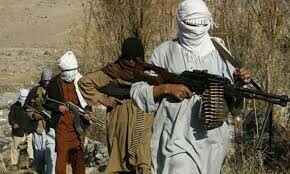THE revival of the National Counter-Terrorism Authority, lying dormant under the PML-N government, as it did during much of the last PPP government’s tenure, is a seemingly welcome move.
For long, the country has needed a counterterrorism think tank, as it were, as well as a body that could play a coordinating role among the myriad intelligence agencies and sub-agencies that exist at the national and provincial levels.
Also read: Changing Titanic’s course
However, in the so-called reinvigoration of Nacta may lie the authority’s quick irrelevance. For one, the issue of keeping Nacta subordinate to the interior ministry — the interior minister via the Nacta executive committee — has not been revisited in the flurry of legislative and administrative debates that have taken place since the Peshawar carnage.
What that effectively means is that Nacta will take its place alongside, rather than higher in, the administrative chain that comprises the very agencies whose performance it is supposed to help improve.
Moreover, it seems quite unlikely that as the head of the executive committee, the interior minister will allow the Nacta coordinator to have a powerful or assertive role. History suggests that interior ministers by and large prefer yes-men to senior officials with an independent streak.
There is though an even bigger problem apparent: the National Action Plan and the two-tiered committee system that the prime minister has introduced has almost completely replicated the job of Nacta.
From recommendations on how to fight sectarianism and hate speech to creating committees that will coordinate how to improve the law and order situation in Karachi and tackle the militant infrastructure in parts of Punjab, the NAP system that has been created will be doing virtually everything that Nacta is meant to do.
Will Nacta own those decisions or try and reverse some of them? Will the interior minister use the Nacta umbrella to try and revive his own master plan, the National Internal Security Policy that had largely been forgotten?
Most importantly, will Nacta be able to develop any institutional role to ensure that military-run intelligence agencies cooperate with it and allow Nacta to play a bridging role between the military and civilian-run intelligence arms of the state?
Perhaps the government has a plan that will make the various parts of the counterterrorism machinery come together as a cohesive whole. But if that plan does exist or is in the process of itself coming together, the nation is none the wiser.
Published in Dawn, December 30th, 2014










































